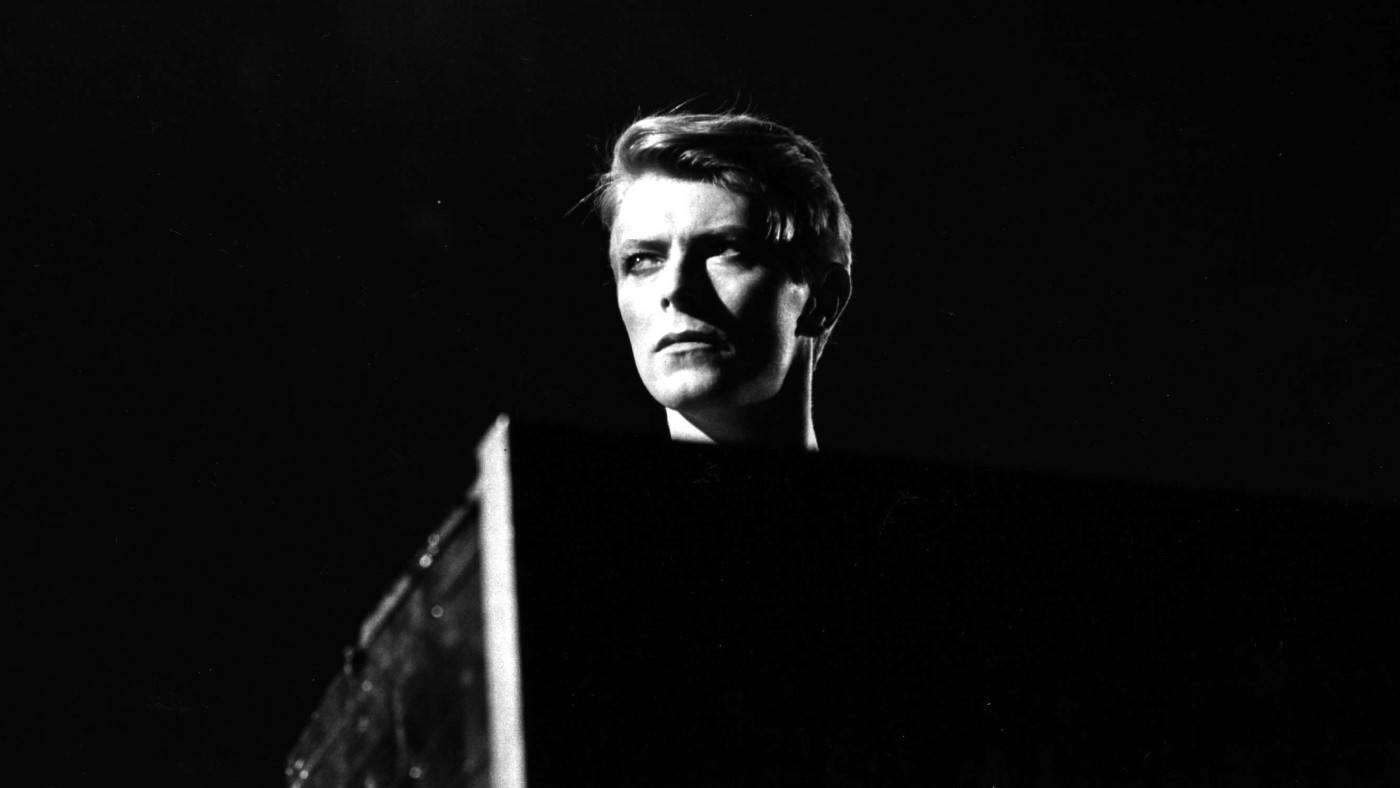In the days around the release of David Bowie’s final album, several leading writers on music republished earlier interviews with the great man. We know now why there were no fresh interviews to accompany his new work. Bowie the showman had even orchestrated his departure from the stage, and the new album with its fixation on death and farewells now makes much more sense. In the video for new song Lazarus we last see him looking suddenly old and walking backwards into a cupboard. The door closes and he’s gone.
I’m not a music writer; I’m just a Bowie fan. I won’t attempt to compete with someone like the great Mick Brown of the Telegraph when it comes to analysing Bowie’s work. Mick’s 1996 interview is not only beautifully written – as you might expect – it also gets close, or as close as it was possible to get, to capturing the contentment of Bowie in the last two decades of his life when he could lose himself in family and New York. It seemed, to me, that this phase would stretch on almost forever, until sometime in his 90s Bowie just slid away. It was not to be.
The recordings from the mid-1990s didn’t result in his best work; there’s no way round it. There were fine moments but it would have been impossible to maintain the level and quality of work he produced from 1969 to 1983. Still, on a day such as this, waking to hear the man on Radio 4 reference Bowie and wonder why he mentioned the Laughing Gnome and then talked about Bowie in the past tense (was? was?), it is easy to go overboard on the praise, as though Bowie made no wrong turns. That is untrue. In the 1980s after Let’s Dance (great singles, dodgy album) he got himself into a terrible mess artistically. He acknowledged it himself and said he realised it had all gone wrong when in the mid-1980s he was for the first time having to rely on a stylist to try and get his look right. In that period Bowie was chasing fashion rather than leading it. The low point was his unintentionally comical appearance in the film Labyrinth.
Being human, Bowie wasn’t perfect, just as the Beatles weren’t perfect, although that comparison is apt. Their success is down to an extraordinary accident of circumstances and fusion of personalities. There were four of them, though. Bowie was just one man, working with gifted collaborators, sure, but ultimately he was it. His work in the 1970s was almost as good as the Beatles had been in the 1960s, yet it was the work of one man. That is a remarkable legacy.
I’m conscious that (some) younger readers might wonder what all the fuss is about today. If you are new to him, or even if like me you’re a fan, the answer lies in hearing and seeing the most charismatic of performers, because Bowie is as much for watching as he is for listening. Here are five links to performances that I recommend, with a brief explanation of why they matter:
In music and visual terms, Bowie invented the 1980s, and ironically – probably because he was exhausted – proceeded to have a poor decade following the last hurrah of Let’s Dance and then the Absolute Beginners single. Fashion anticipates many of the trends of that decade, including the fixation with a fitness regime, and the look at me narcissism of the fashion industry.
There are better straightforward performances of this song available, but the joy in this lies in how much pleasure Bowie takes in the audience’s delight. There’s artifice involved, of course. For goodness sake, it’s a rock star in a pale blue/grey suit bopping about in front of tens of thousands of people, but it is just so damned life-affirming. What’s that? No, I’ve just got something in my eye…
3) Jean Geanie, live on Top of the Pops (1973)
Rock’n’roll recalibrated and re-energsied, teaching the Stones a lesson. Electrifying.
4) Young Americans, the Dick Cavett Show (1974)
Less than six months earlier, Bowie had got himself into a drugged-up state while overdoing the theatrics with a Spinal Tap-style set on the Diamond Dogs tour. He wisely junked it, changing the tour half way through and immersing himself in soul. Here he is in December looking somewhat undernourished but performing like a man possessed. And yes, that’s Luther Vandross on backing vocals. Who’s Luther Vandross? Never mind. Google him…
Recorded in the summer of 1985, this is, for me, the final pure piece of perfect Bowie, where pop sensibility meets artistic ambition. I stress that periodically he made some decent records after this. But on Absolute Beginners he is frozen in time as the coolest, sharpest and most charismatic figure of his age. The absolute best.


